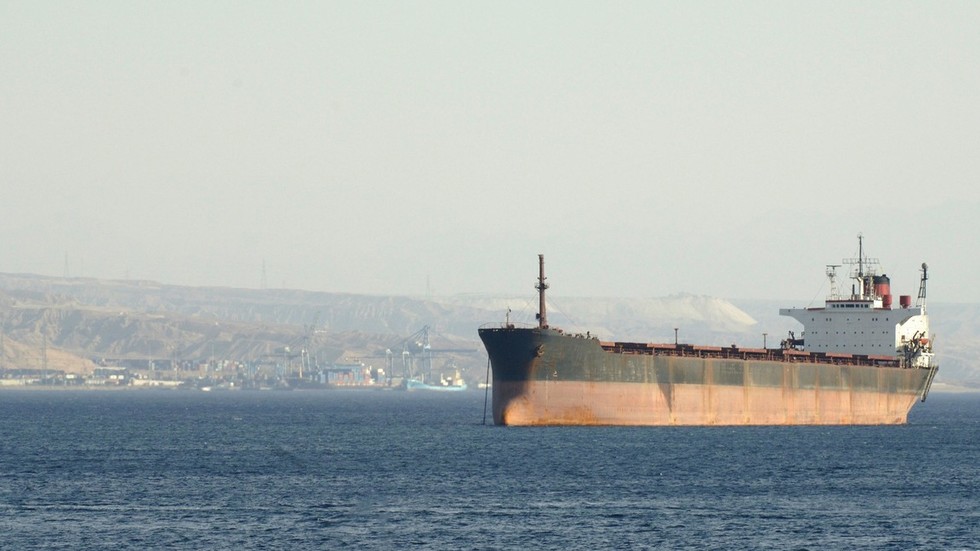Iran has threatened to block the Strait of Hormuz over the US strikes, while the Houthis previously targeted Western ships in the region
Ships traveling near the Red Sea and Persian Gulf have begun transmitting false Russian and Chinese affiliations to avoid potential attacks, Reuters reported on Thursday, citing maritime risk analytics firm Windward and vessel tracking data.
Tehran, which controls the Strait of Hormuz – a key route for global oil – threatened to close it if the US joined Israeli strikes on its nuclear sites. Iran’s parliament reportedly approved the move on Sunday, though the final decision lies with the Supreme National Security Council.
Meanwhile, the Iran-backed Houthis have attacked ships in the Red Sea since late 2023, citing solidarity with the Palestinians during the Gaza conflict. While US President Donald Trump brokered a deal in May to halt the attacks in exchange for a pause in Western airstrikes, the group has since warned that it would target US ships if Washington backed Israeli attacks on Iran.
Although a ceasefire was reached between Israel and Iran earlier this week, Ami Daniel, the CEO of Windward, said shipping companies remain skeptical about vessel safety in the area.
“The perception among shipowners is that due to the convoluted nature of shipping it’s hard to know or ascertain clearly a chain of ownership to nationalities which may be under higher threat in shipping, namely the UK, US and Israel,” Daniel told Reuters.
Windward said 55 vessels sent a total of 101 atypical ID messages, such as “China owned” or “Russian crude,” between June 12 and 24 in the Persian Gulf and Red Sea. The firm said these were likely used to reduce the risk of being mistaken for Western or Israel-linked ships. A Panama-flagged ship en route to Pakistan signaled “PKKHI all Chinese,” while a Singapore-flagged vessel transmitted “Vsl no link Israel.”
Daniel added that under normal circumstances vessels transmit destinations or neutral terms such as “For Orders,” while some use “Armed Guards on Board” in high-risk zones. But after Israel’s strikes on Iran, the use of non-standard messages spiked and spread from the Red Sea into the Persian Gulf.
READ MORE:
Russia to respond to West’s attempted restrictions in Baltic Sea – Putin aide
News of ships disguising vessel identities comes as the West continues to sanction what it sees as Russian-linked maritime activity. The EU and US have accused Moscow and its trade partners of using a “shadow fleet” of tankers operating outside Western insurance rules to bypass sanctions. In May, the EU blacklisted 189 additional vessels – many flying the flags of other countries – bringing the total under restriction to 342. Brussels is currently discussing another package that would add another 77 ships to the list.
Russia has repeatedly denounced the sanctions against its shipping sector as illegal. Presidential aide Nikolay Patrushev earlier warned that Western efforts to hinder Russian maritime transit through international straits were “de facto acts of piracy,” adding that such moves increasingly resemble a “naval blockade.” He said Russia is prepared to deploy its navy to safeguard navigation.
Read the full article here


